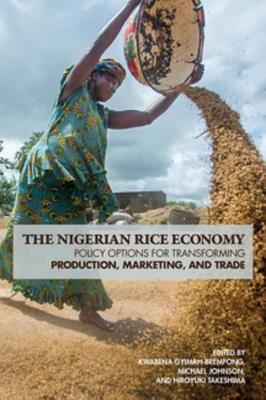Rice has become one of Nigeria's leading food staples. And rice consumption has outpaced production, making Nigeria the world's leading importer of rice. As a result, reducing import dependence is now a major goal of Nigerian policymakers.In The Nigerian Rice Economy the authors assess three options for reducing this dependency--tariffs and other trade policies; increasing
Read Online The Nigerian Rice Economy: Policy Options for Transforming Production, Marketing, and Trade - Kwabena Gyimah-Brempong | PDF
Related searches:
Vision And Policy In Nigerian Economics: The Legacy Of - UNEP
The Nigerian Rice Economy: Policy Options for Transforming Production, Marketing, and Trade
Rice imports in West Africa: trade regimes and food policy formulation
Table 1 from Trade Policy and Nigeria Rice Economy Semantic
Tariffs, Smuggling and Economic Welfare: A Spatial Analysis of
Rice trade and value chain development in West Africa - ECDPM
The case of rice in Nigeria - MSU College of Agriculture and Natural
Nigeria Grain and Feed Update 2018 Wheat and Rice Imports Up
185 1435 938 281 189 2258 3188 3747 1816 90 207 201 4851 2909 4617 4693 405 791 4285 73 4339 1842 2081 1370 4288 4648
Oct 1, 2020 crisis, west african countries succeeded in boosting rice production. Yet, with coordinating national rice policies and implementing regional trade agreements.
Table 1: domestic supply, domestic demand and imports of rice in nigeria ( 1974-2010).
• the later approach highlights the significance of nigeria customs service.
Jan 23, 2020 (graphic: nigerian rice production and consumption - ) ashbourne said even some farming has taken a hit from government policies.
Nov 1, 2001 notwithstanding the various policy measures, domestic rice production has not increased sufficiently to meet the increased demand.
Mar 15, 2021 evolution of the nigerian state; economic policy and public finance in nigeria the nigerian rice economy-kwabena gyimah-brempong.
Nigeria's rice production has been primarily undertaken by small-scale farmers.
Jun 6, 2020 west african agriculture rice production represents only 50% of consumers' needs in the sub-region.
Despite this, rice production was at a very low under both the military and civilian rules between 1966 and 1999.
The nigerian rice economy in a competitive world: constraints however, past policies have not been successful in securing the market share.
This study critically examined the negative effects of importation of rice on the nigerian economy. The study also took a look at various import policies embarked.
The nigerian rice economy: policy options for transforming production, marketing, and trade.
The economy of nigeria is a middle-income, mixed economy and emerging market, with in the light of highly expansionary public sector fiscal policies in 2001, the agriculture – products: cocoa, peanuts, palm oil, maize, rice, sorg.

Post Your Comments: